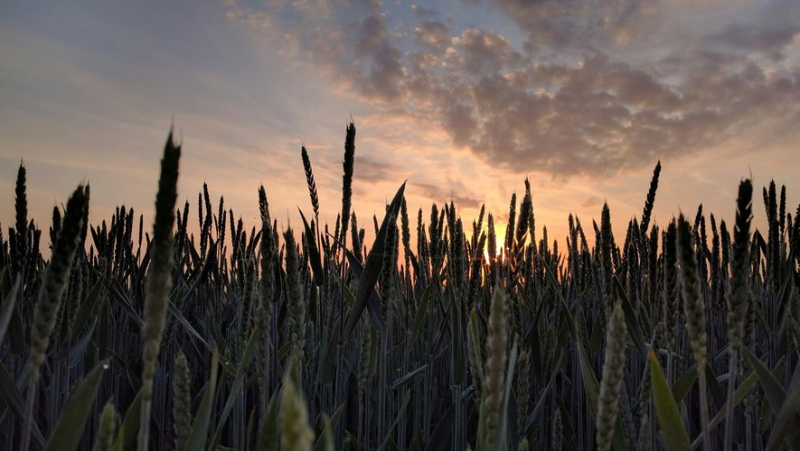Up to 50% losses: French cereal growers fear a “catastrophic” 2024 harvest

Des pertes allant jusqu’à 50 % dans certaines zones, plusieurs qualifiant la moisson 2024 de “catastrophique”. Unsplash – Michal Gałężewski – Illustration
The abundant rains since last autumn have often delayed, or even prevented, sowing: the areas dedicated to soft wheat, the main French production, have thus fallen by 11% compared to 2023 according to the latest report from the statistical service of the Ministry of Agriculture.
“From the car, the ears of wheat looked beautiful. But in the field, many of them were empty or only 40-50% full”, laments Eric Genty, a cereal farmer in Eure-et-Loir. For him, it is certain that the harvest will be "worse than that of 2016", a year often remembered with bitterness by farmers.
The lack of sun then hampered the development of the plants. The yields are poor. In Eric Genty's plots, in the heart of Beauce, an expert recently estimated that his durum wheat would yield 4.2 tonnes per hectare, compared to 7.5 on average, and his soft wheat 6 tonnes, compared to 8.5 usually.
Alongside several representatives from the agricultural world, he received the Minister of Agriculture Marc Fesneau on Monday on his farm in Sainville to “make him aware of the situation” in the country, the leading producer of cereals in the European Union.
The 2024 harvest is "catastrophic"
The farmers present spoke of very disparate situations, with losses of up to 50% in some areas, with several describing the 2024 harvest as "catastrophic".
"For soft wheat, we are usually around 36 million tonnes ; some are talking about 28, 27 or even 26 million tonnes for this year, which is a colossal drop”, stressed Eric Thirouin, president of the General Association of Wheat Producers (AGPB).
The rains still regularly prevent combine harvesters from working in the fields, which makes it difficult to estimate, notes Sébastien Poncelet, a cereal market specialist for Argus Media.
With just under half of the wheat still to be harvested,“We're waiting to see if wheat from later regions will pick things up a bit or not”, he explained to AFP. But if the worst-case scenarios are confirmed, the harvest would be the least abundant since the 1980s, he said.
“Farmers' costs have increased enormously”
At the same time, “Even if wheat prices are at the same level or higher than in 2016, farmers' costs have increased enormously”, recalls Sébastien Poncelet. The government is ready to activate exceptional aid measures if the harvests turn out to be really bad, assured Marc Fesneau.
Even if the government only manages current affairs, “we continue to monitor the situation, we can activate mechanisms […], we can begin discussions with a certain number of bodies so that those who will be responsible for monitoring agricultural issues — and we will see who — have things ready for the start of the school year", he indicated.
Mobilization of crop insurance, reduction of tax on undeveloped land (TFNB), mobilization of the deduction for precautionary savings (DEP), deferral of contributions from the organization that manages social security for farmers MSA: the ministry is studying several avenues. Marc Fesneau also mentioned the launch of discussions with Brussels for the activation of the agricultural crisis reserve.
The head of the FNSEA, the leading agricultural union in France, Arnaud Rousseau, gave him "meet up in ten days", warning that he should not come “empty-handed”. The Rural Coordination had pleaded last week for “a blank year of MSA contributions, as well as a blank year at the level of the banks”.
“Promises were made and did not come to fruition”
Everyone recognizes the importance of supporting the cash flow of the farms in the most difficulty. “A bad harvest in a farmer's life happens, everyone has memories", recalled Arnaud Rousseau. “We now need to have enough cash to be able to sow seeds next year”.
But we also need to “change the mindset”, he added. Since the agricultural crisis, “promises have been made and not delivered”, on simplification measures for example or the agricultural bill, whose examination in parliament was suspended with the dissolution, the union leader stressed.
Farmers “will think that once again, we have been had”, he noted, mentioning “a risk for some of turning to violence”.




